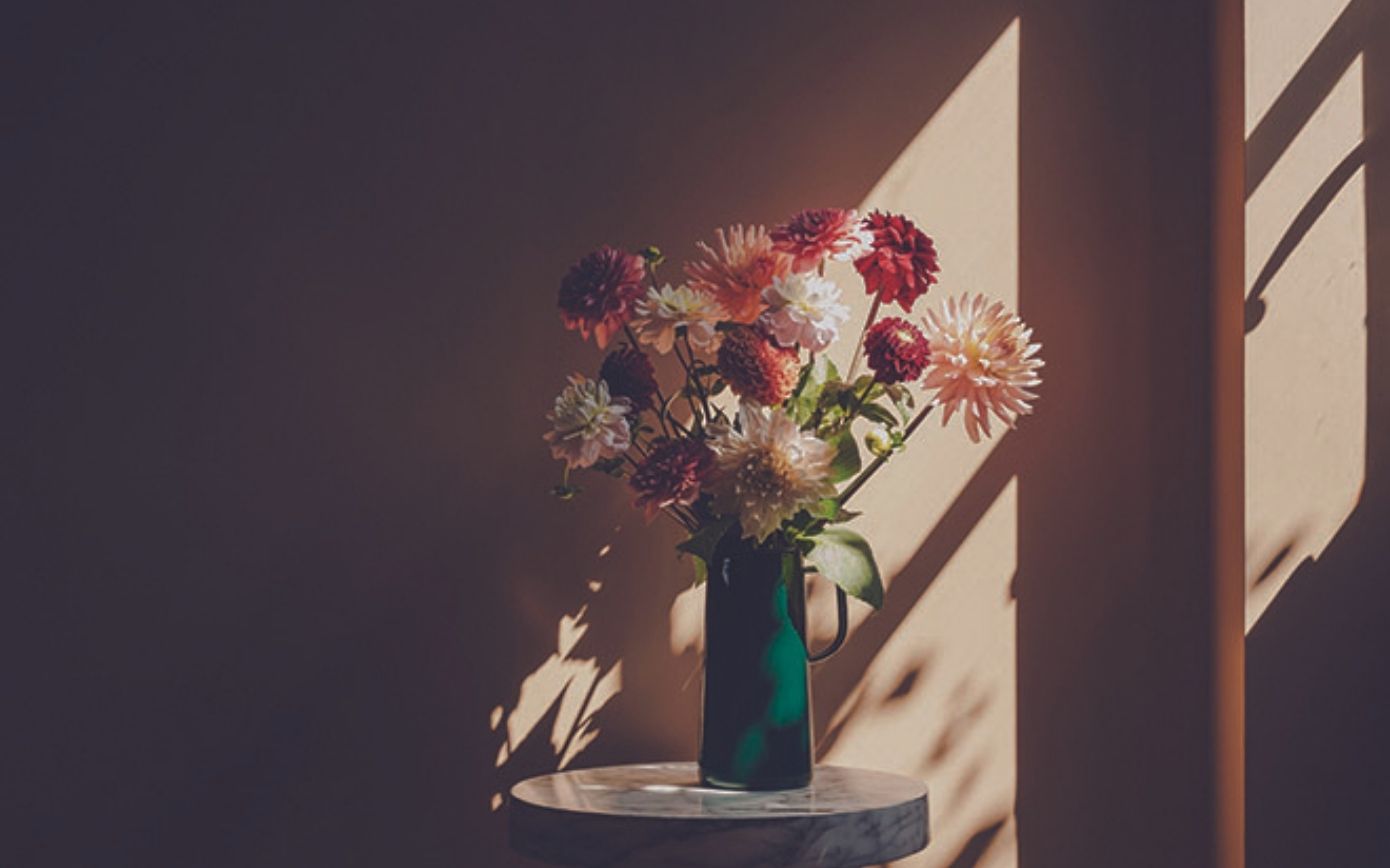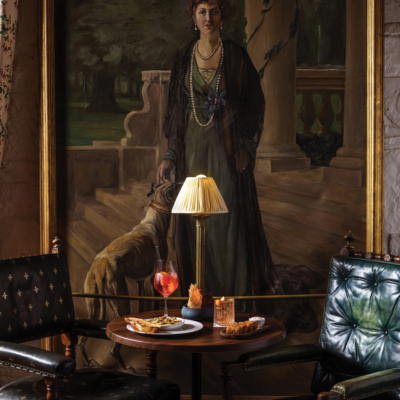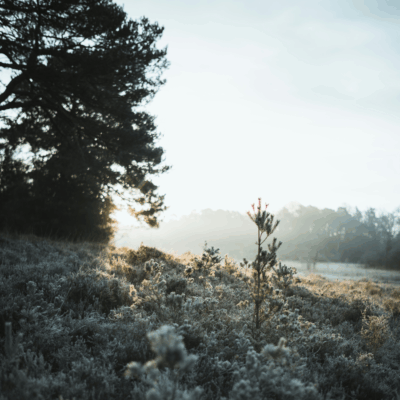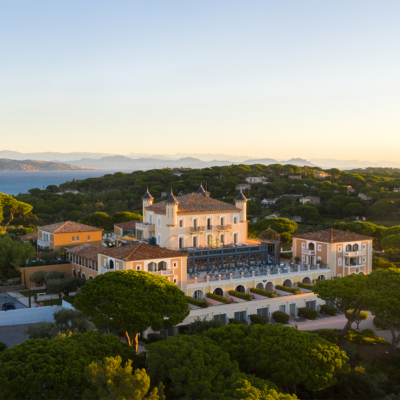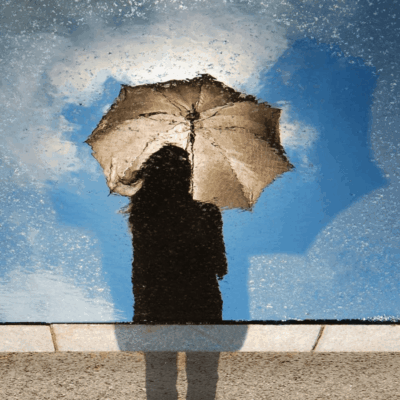Wake up and smell the roses, says Holly Hughes …
February, the month of blooming flowers. Daffodils in the hedgerows, snowdrops in the woods, and roses in abundance for Valentine’s Day.
“Say it with flowers”, the saying goes. But what are we actually saying with our flowers – “I love you” or “I’m thinking of you”? Or is it, “80 per cent of roses are imported from South America or Africa and are damaging local ecosystems and our planet” or “45 per cent of flowers die before they are sold, so the intensive use of water, land, energy, and chemicals needed to produce them is completely wasted”?
Our love of cut flowers might be at odds with our love for our planet.
In Ireland, 95 per cent of the cut flowers we buy are imported from abroad and, despite the Netherlands’ famed reputation for flower-growing, most of these come from Colombia, Ethiopia, Kenya, and Ecuador.
However, it is difficult to confirm this because unlike foodstuffs, flowers aren’t regulated by place of origin requirements. We might think we’re buying flowers from the Netherlands (they export 60 per cent of global flowers) but these could have been merely packaged there, having been freighted from much further away (the Dutch only grow ten per cent of the world’s flowers). The carbon cost of transporting and refrigerating these flowers – which are required to go from field to vase in three to five days – is environmentally devastating.
Large-scale flower production is also harmful to the countries they are grown in. In Kenya, drought-stricken Lake Naivasha has lost half of its already dwindling water supply to flower propagation. Add to this the profligate use of pesticides that leach into water systems and damage biodiversity and the fact that the workforce is not only exposed to these chemicals but is largely female and therefore subjected to low wages and human rights violations, and suddenly life is an Outkast song and those roses really do “smell like poo”. Particularly when they end up in the bin – which is what happens to 40 per cent of flower deliveries to florists.
Why does this matter? Because we, the world over, love our flowers. The global cut flower industry is worth approximately €49bn annually. In Ireland, we spent €97m on fresh-cut flowers in 2020. Say it with flowers we do – loudly and lavishly! – on Valentine’s Day (responsible for 28 per cent of flower sales), Mother’s Day and Christmas (26 per cent apiece).
Now, this is where I tell you I’m an avid flower-giver (often to myself, sometimes begrudgingly to others) and have no intention of stopping. Instead of giving up flowers, let’s look at how we can change our flower-buying habits so that they reduce carbon emissions, pesticide use, plastic waste, and our precious bees.
Our love of cut flowers might be at odds with our love for our planet.
Is the answer to simply grow our own in Ireland? Not really. Flowers are thirsty plants with demanding energy requirements and so cultivating flowers that aren’t native to our climate can be as damaging as shipping in roses from Ecuador. It’s also important to note the economic benefits that flower farming brings to vulnerable Global South communities. Taking away their industry is taking away financial security from many families.
So, we can still buy imported flowers occasionally? Yes. Rather than agitating for rose farms in Wicklow or an all-out boycott from imported flowers, with the right amounts of nosiness and conscientious questioning, you can still occasionally purchase imported blooms.
Firstly, avoid supermarkets and discounters and choose a good florist. Once you find them, talk to them. Ask how far their flowers have travelled, who your purchase will benefit, how they’re trying to reduce waste, if they have locally produced options. Look for accreditation around workers’ rights and environmental standards – Fairtrade, the Rainforest Alliance, Certified Organic and Florverde are all certifications to look for. Ask for reused paper rather than plastic to wrap a bouquet, or no wrapping whatsoever, if you bring your own vase. Online, find florists like New Moon Blooms, a Fairtrade florist with a zero-carbon mission which doesn’t use single-use plastic, pesticides, palm oils or petrochemicals.
While one individual cannot change the machinations of an industry, asking these questions of our florists demonstrates that there is a demand for sustainable and ethical flowers. And, as we all know, where there is demand, supply soon follows – be demanding!
Is there more we can do? The best thing you can do – aside from growing your own – is to treat flowers as we do food. Choose local, seasonal flowers that are produced sustainably and are pollinator-friendly for our endangered bees.
The Flower Farmers of Ireland is an organisation of almost 60 flower growers redefining the Irish floral industry to promote the homegrown, delicate, sweet-smelling blooms too often excluded from florists. They believe flowers should be grown in ways that honour both our environment and the people who produce so you can be assured, whenever you purchase a bouquet – guaranteed to be completely unique! – from one of these growers, you are supporting planet, wildlife, and people. Visit www.flowerfarmersofireland.ie to find your nearest florist from whom you can order directly. Some will deliver locally.
Other sustainable flower producers include Bumble Bee Flower Farm in Drimoleague in Co Cork – “Always grown, never flown” is its tagline – which is dedicated to protecting bee populations and preserving Ireland’s ecosystems via beautiful, year-round offerings, all grown or foraged locally.
So it turns out you can still say I love you with flowers. It just so happens, if you forage them from your garden or buy them from a local producer, that this declaration of love will be also directed at the planet, the bees, and the land we are lucky to live on. @holly_hughes_words
LOVETHEGLOSS.IE?
Sign up to our MAILING LIST now for a roundup of the latest fashion, beauty, interiors and entertaining news from THE GLOSS MAGAZINE’s daily dispatches.





